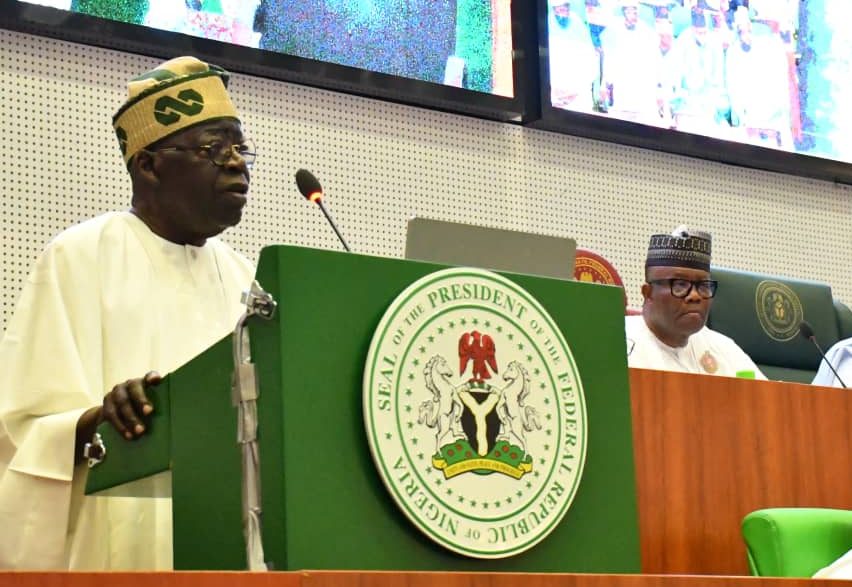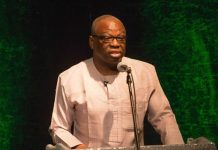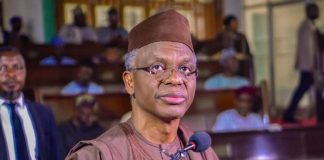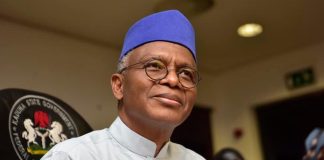🌿 Ruzu Non-Alcoholic Herbal Bitters
Ruzu Non-Alcoholic Herbal Bitters is a natural health supplement specially formulated to:
- ✅ Promote general wellness
- ✅ Detoxify the body
- ✅ Support the treatment of various ailments
Made from a powerful blend of 100% organic and medicinal herbs, Ruzu is completely alcohol-free, making it ideal for:
- 👪 All age groups
- 🌱 Health-conscious individuals
- 🌿 Anyone seeking non-alcoholic herbal remedies
Whether you're looking to boost your vitality, cleanse your system, or support healing the natural way, Ruzu Bitters offers a trusted herbal solution.
BudgIT Nigeria, a non-governmental civic and transparency organization, alleges that the 10th National Assembly (NASS) included 11,122 projects valued ₦6.93 trillion in the 2025 budget.
BudgIT found that 238 projects worth more than ₦5 billion each, totaling N2.29 trillion, were added without rationale.
BudgIT claimed that 984 projects worth ₦1.71 trillion and 1,119 projects between ₦500 million and ₦1 billion, totaling ₦641.38 billion, were indiscriminately introduced.
According to a report released on Tuesday, 3,573 projects worth ₦653.19 billion were allocated to federal constituencies and 1,972 projects worth ₦444.04 billion to senatorial districts.
“Some of the most glaring anomalies include: 1,477 streetlight projects worth ₦393.29 billion, 538 boreholes totalling ₦114.53 billion, 2,122 ICT projects valued at ₦505.79 billion and ₦6.74 billion earmarked for ’empowerment of traditional rulers’,” reads the document.
The Ministry of Agriculture’s capital allocation increased from ₦242.5 billion to ₦1.95 trillion as 39% of all insertions, or 4,371 projects worth ₦1.72 trillion, were forced into the budget.
The Ministries of Science and Technology and Budget and Economic Planning received inflated appropriations of ₦994.98 billion and ₦1.1 trillion, respectively, solely from insertions.
“Even more alarming is the deliberate exploitation of entities such as the Nigerian Building and Road Research Institute (Lagos) and the Federal Cooperative College, Oji River, as dumping sites for politically motivated projects.
Read Also: OWSD Ibadan to Honor Prince Cletus Ilobanafor of CEOAfrica
“These agencies lack the technical capabilities to carry out such initiatives, resulting in widespread underperformance and waste.
“For example, the Federal Cooperative College, Oji River—a training institution—was saddled with: ₦3 billion for utility vehicles to support farmers and distribution agents, ₦1.5 billion for rural electrification in Rivers State, ₦1 billion for solar streetlights in Enugu,” said the statement.
BudgIT urged President Bola Tinubu to exert stronger executive leadership and modify the budgeting process to ensure alignment with the Medium-Term National Development Plan (2021-2025) and other national priorities.
“We urge the Attorney General of the Federation and Minister of Justice to seek a constitutional interpretation from the Supreme Court regarding the extent of the National Assembly’s appropriation powers, particularly its authority to introduce new capital projects without Executive concurrence.
“We trust that the anti-corruption institutions, the Economic and Financial Crimes Commission (EFCC) and the Independent Corrupt Practices and Other Related Offences Commission (ICPC), will take measures to track these projects and ensure Nigeria gets good value for money.
“We also encourage individuals, the media, civil society organizations, and the development community to speak up and demand change. This is about more than just financial malfeasance; it is about justice, equity, and Nigeria’s future of accountable governance,” it stated.
















